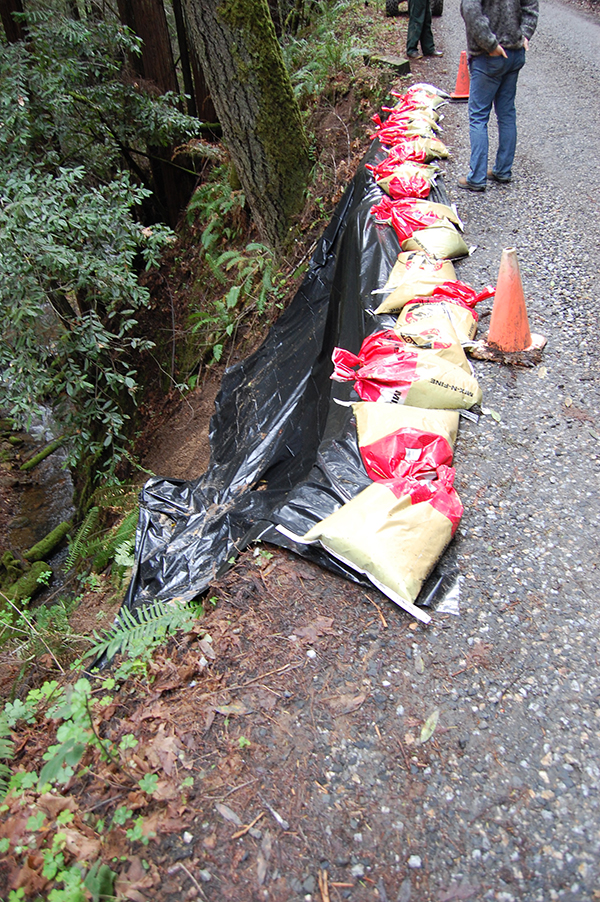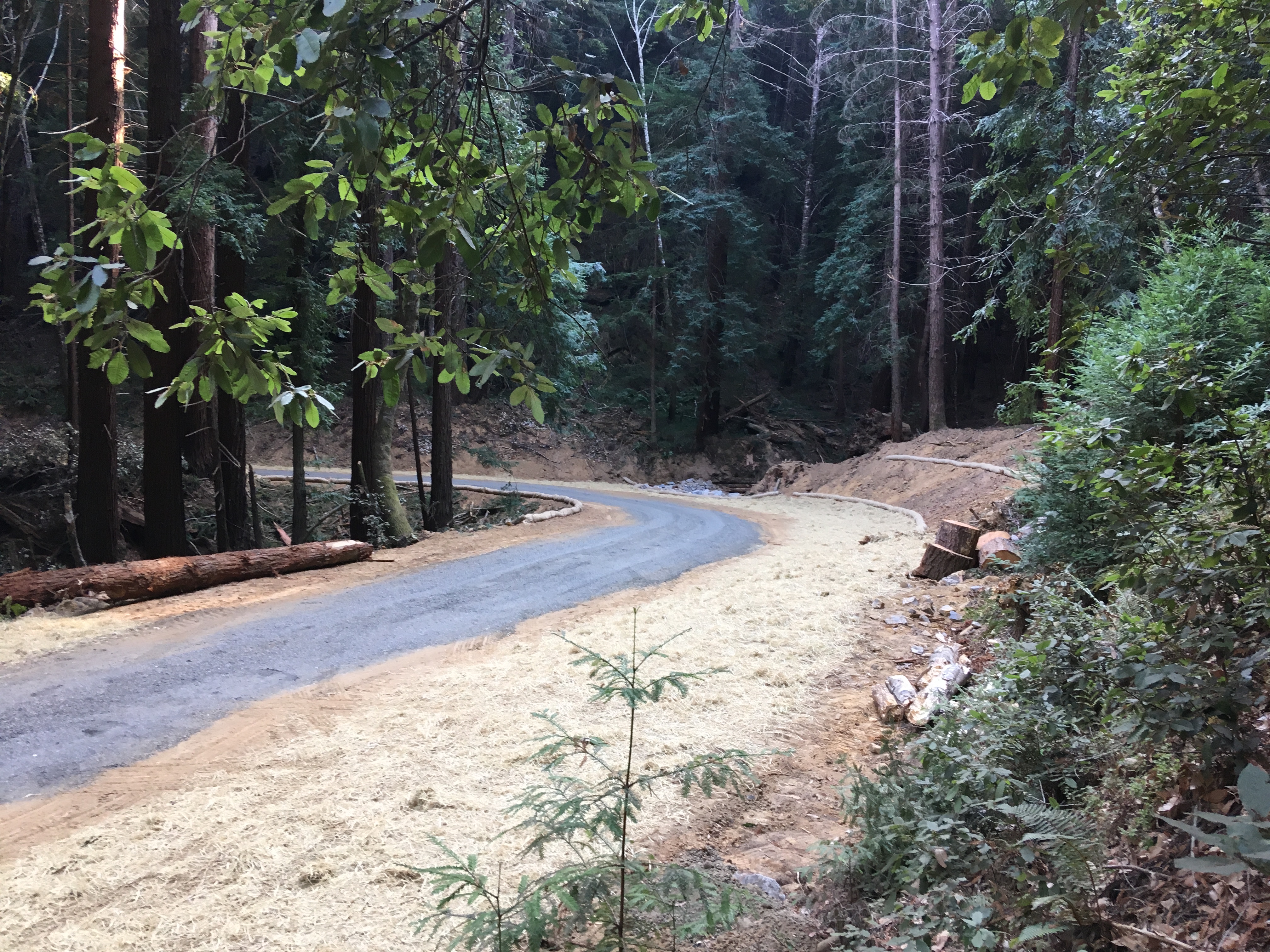Rural Roads Assistance
For many rural landowners and managers in coastal San Mateo County, erosion and washouts of unpaved roads disrupt access and lead to costly repairs and annual maintenance. Additionally the soil erosion and runoff from these roads pollute streams with excess sediment causing damage to habitat for fish and other wildlife, and increase flooding issues downstream. The RCD started the Rural Roads program in 2011 to help landowners address these erosion issues for their benefit as well as that of the natural resources. These efforts have included conducting roads assessments, developing strategies to improve the roads, and assisting landowners and managers with proper maintenance of rural roads and sedimentation reducing practices.
Recently, the core work of the Rural Roads program has focused on:
- Technical assistance to private landowners. In coordination with NRCS staff, the RCD responds to requests from local landowners for assistance with roads and other types of erosion on their properties. Depending on the landowner, this free assistance can range from over-the-phone guidance on available resources and requirements, to on-site visits to help landowners to identify best management practices and erosion treatment options.
- Repairing creek crossings and improving road surface drainage. Working closely with landowners, funders and other stakeholders, the RCD has completed these types of projects – from planning, design and permitting, through construction – in multiple watersheds in coastal San Mateo County, including Pescadero, Pilarcitos and Gazos Creeks. The RCD’s current efforts are focused on a very large, failing crossing along Old Haul Road in Pescadero Creek County Park. Learn more about the Dark Gulch Project (under construction in Summer 2020).
- Assistance with TMDL (Total Maximum Daily Load) compliance. For Pescadero-Butano Watershed, a sediment TMDL regulation has been established by the Regional Water Quality Control Board (Regional Board). It requires landowners of properties above a certain size threshold to inventory and report sediment sources, prioritize best management practices (BMPs) to address these, and adopt a plan and schedule for implementation. The RCD worked with the Regional Board staff to establish an efficient, clear path forward for landowners to voluntarily comply with the new requirements and avoid overwhelming and unnecessary costs and time burdens. Learn more about this TMDL technical assistance.
Partners:
- NRCS
- Landowners
- Resources Legacy Fund
- Regional Water Quality Control Board
RCD Contact: Sara Polgar


